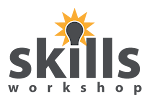 The latest edition of the RaPAL (Research and Practice in Adult Literacy) journal dropped on my door mat this morning. I must say it’s great to have end-of-term time to sit down and have more than just a quick browse.
The latest edition of the RaPAL (Research and Practice in Adult Literacy) journal dropped on my door mat this morning. I must say it’s great to have end-of-term time to sit down and have more than just a quick browse.The first thing that caught my eye was Genevieve Clarke; I recognised her name from the Vital Link site (see my earlier post on ‘Sandals’). She writes about 2008 a National Year of Reading and is clearly passionate about promoting reading for pleasure. She finishes her piece with this rather sweeping statement: ‘The continuing challenge is to make this [a love of books] a regular part of every Skills for Life learner’s experience.’
Then, as I continued skimming, I thought I was seeing things! Each time I flicked a page I noticed that the emboldened headings within a rather long article looked remarkably similar - in fact, identical - to half a dozen Adult Literacy Curriculum speaking and listening elements.
This, of course, immediately drew me in. In fact I ditched my almost finished Grisham paperback and took the journal to read on the X3 into Oxford. Could there be another person out there as obsessed with curriculum elements as me? I turned back to the start of the article to make sense of it.
The author is Bob Hill, a Skills for Life tutor, and he writes a clever, tongue-in-cheek piece (or as he says ‘…deliberately ironic’). It turns out that each heading of ‘Who’s Speaking, Who’s Listening? Reducing Re-offending Through Skills and Employment’ is a subtle dig at the government’s shortcomings. The underlying message being that they (the government) are not making a very good job of following the curriculum – especially the listening elements!
In case you’re wondering, here are the headings used in the article (curriculum levels and numbering provided by me). Note that most are (only) at Entry Level 2!
In case you’re wondering, here are the headings used in the article (curriculum levels and numbering provided by me). Note that most are (only) at Entry Level 2!
Follow and contribute to discussions on a range of straightforward topics. SLd/L1.1Of course, there’s more than this to the article. For example, the author is very disgruntled (with good reasons supplied) about the removal of funding for short 3 hour and 6 hour courses.
Speak clearly to be heard and understood in straightforward exchanges. SLc/E2.1
Follow the main points and make appropriate contributions to the discussion. SLd/E2.2
Make requests and ask questions to obtain information in familiar and unfamiliar contexts. SLc/E2.2
Express clearly statements of fact and give short explanations, accounts and
descriptions. SLc/E2.3
Support opinions and arguments with evidence. SLd/L2.4
There’s lots more to read in Volume 65 including useful information on how Leicester College takes a WOA (whole organisation approach) to embedding Skills for Life. Don’t forget the embedded / contextualised section on the site - I’m always looking for new materials!
A moving piece on ‘…violence, literacy and learning’ left me feeling totally unable and unqualified to comment - so I won’t even try.
There’s also an eye-opening perspective on broadsheets and why it’s hopeless trying to catch a girl’s eye on the train if you’re hidden behind the Guardian (but the Sun’s all right)! Several other very lengthy tomes, that I haven’t read yet, discuss basic education in the British army, and Christian Science.
So, it really is (as it says on the cover) a bumper issue! I’ve been a member since 2005, when I was studying for the Level 4 Literacy Certificate in Professional Practice, and it nearly always provides food for thought. If you don’t subscribe have a look in your college library and see if it’s on the shelf.





No comments:
Post a Comment